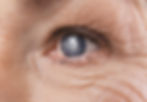Glaucoma Explained: Symptoms, Risks & Why Early Detection Saves Vision
- Sarah Lee
- Feb 3, 2025
- 2 min read
Updated: Feb 4, 2025

Glaucoma: Understanding the Disease and the Importance of Early Detection
Glaucoma, often called the "silent thief of sight," is a group of eye disorders that can lead to irreversible vision loss. It primarily affects the optic nerve, typically due to increased intraocular pressure (IOP). This condition can progress silently, making it essential to understand its mechanisms and the critical role of early detection.
How Glaucoma Develops
Glaucoma arises from an imbalance in the eye's aqueous humor—the fluid responsible for maintaining eye pressure. When the fluid cannot drain properly, pressure builds up, potentially damaging the optic nerve over time. The main types of glaucoma include:
Open-Angle Glaucoma: The most prevalent form, where drainage canals gradually become obstructed, leading to increased pressure.
Angle-Closure Glaucoma: A more acute condition caused by a sudden blockage in drainage, often resulting in severe symptoms.
Normal-Tension Glaucoma: This variant can occur even with normal eye pressure, indicating other underlying issues affecting the optic nerve.
The Critical Role of Early Detection
Detecting glaucoma in its early stages is vital for effective management. Regular eye exams are essential, especially for those over 40 or with risk factors like a family history of the disease. During these examinations, eye care professionals will measure IOP, evaluate the health of the optic nerve, and perform visual field tests to identify any potential issues.
Early stages of glaucoma often present no noticeable symptoms, making routine check-ups even more crucial. As the disease advances, individuals may experience gradual loss of peripheral vision, emphasizing the need for proactive care.
To aid in early detection, it’s important to recognize risk factors, including age, ethnicity, and family history. Staying informed and prioritizing regular eye examinations can significantly increase the chances of catching glaucoma early. With timely intervention—ranging from medication to surgical options—vision loss can often be prevented.
Final Thoughts
Being informed about glaucoma and its progression is essential in safeguarding your vision. Regular eye exams not only help with early detection but also ensure that your eye health remains a priority. Encourage friends and family to take their eye health seriously; early action can make all the difference in preserving sight.
Kindly note: This blog is for your reading pleasure and is not a substitute for real-deal medical advice. Always consult a professional for eye health concerns.


